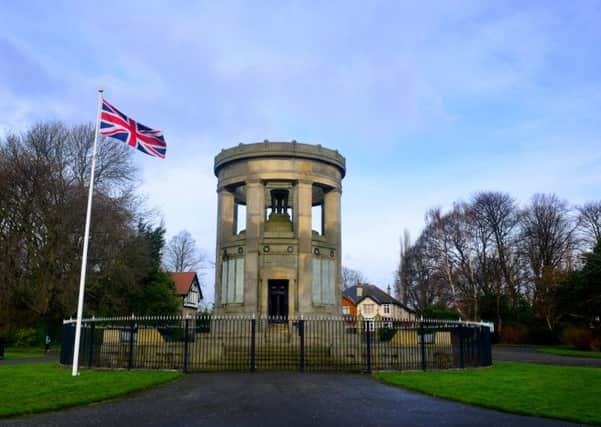WW1 centenary: Soldier’s medal of honour


John Charles Perkins, who lived in Marriot Street, Dewsbury, fought for the KOYLI during WWI.
His daughter, Betty Perkins, of Sheffield, said her father did not speak often about his experiences, but what he did say has stayed with her.
Advertisement
Hide AdAdvertisement
Hide AdHere, she remembers the remarkable stories about dreadful conditions in the trenches, which her father ultimately survived:
“He spoke, though not often, about the absolute horror they had to endure – mud, gas, barbed wire, soldiers blown into pieces – commanders sending wave after wave of men to their deaths in often abortive operations. Trench warfare was especially gruelling, fierce battles were fought for a few feet of land. Huddled in the trenches they could hear the cries of those dying above and when the fighting stopped there was the constant struggle against hunger, disease and boredom. It was then that my father helped morale as he was a brilliant tenor singer.
“They had to get used to the reek of rotting carcasses and overflowing latrines, the odour of poison gas, rotting sandbags, stagnant mud and chloride of lime, which was used to ward off disease.
“Rats swarmed the trenches – brown ones were the most feared since they ate human remains and go grow into the size of a cat – no matter how many were shot, clubbed or bayonetted, they still survived.
Advertisement
Hide AdAdvertisement
Hide Ad“Lice bred in the seams of their filthy clothing, eggs incubated by body heat and may have been the cause of trench fever. Particularly feared was trench foot – a hideous fungal infection of the feet caused by cold, wet and unsanitary conditions which led to gangrene.
“My father fought in a battle near Ypres in February 1916 when his commanding officer noted with pleasure his gallant and meritorious conduct, though he was never told what that was.
“That bombardment destroyed the drainage system of the low lying ground and turned it into a swamp (as the heaviest rains in Europe were recorded at that time). He said you had a job to move because the mud was so heavy – you just dragged your legs behind you, walking over dead bodies and injured friends to keep moving forward.
“The thing he hated most was going over the top while being fired at and friends being killed all around you, thinking that you would be next.
Advertisement
Hide AdAdvertisement
Hide Ad“Fortunately, he survived as did two of his brothers, who were in Egypt, and one who was invalided in France.
“He would never talk ill of the Germans, though some were cruel, but most didn’t want to be there more than he did.” Mr Perkins died aged 92.